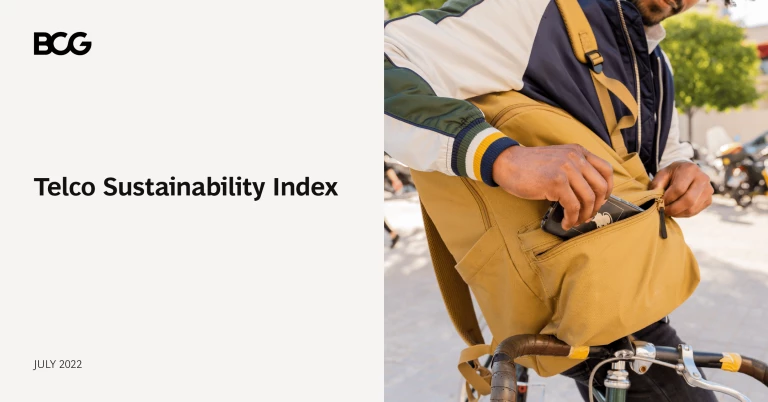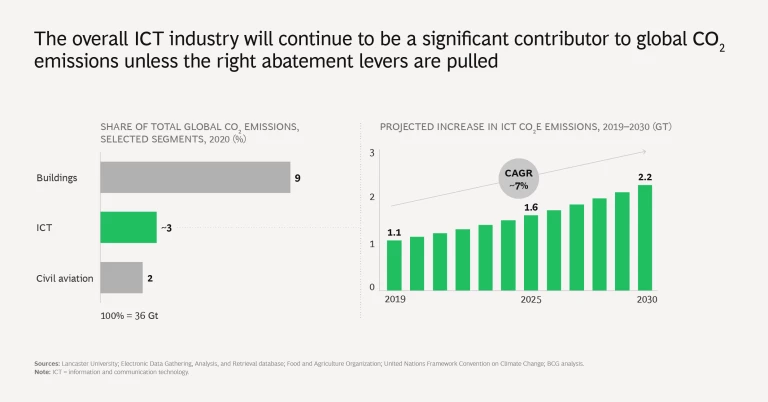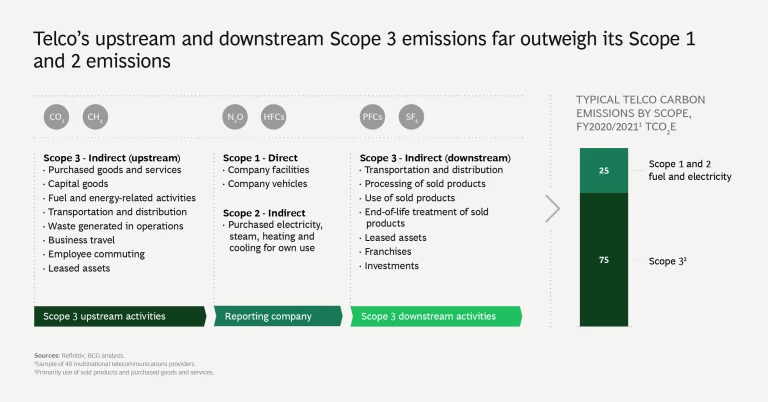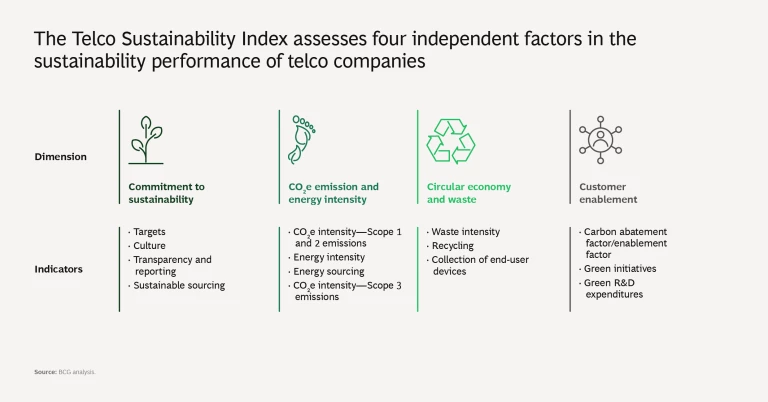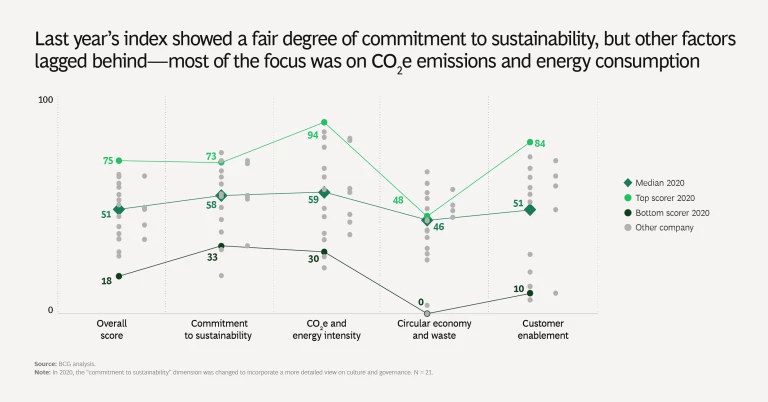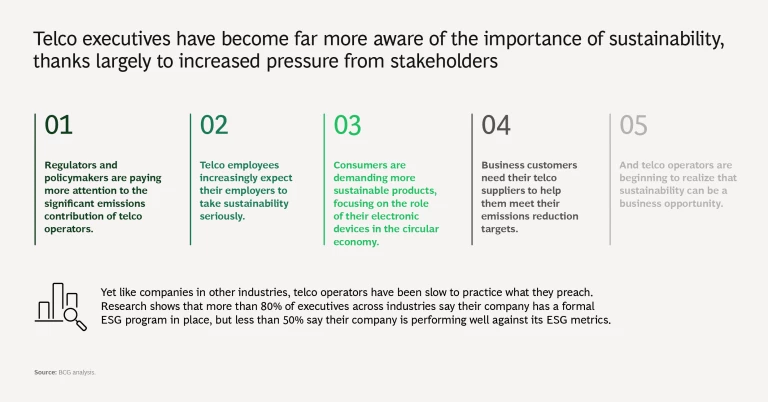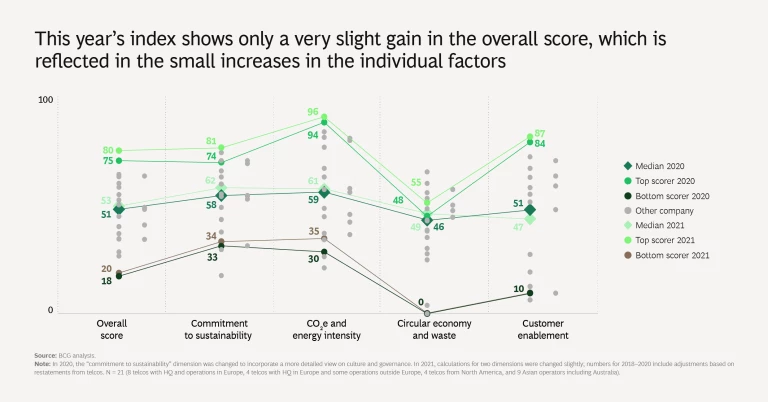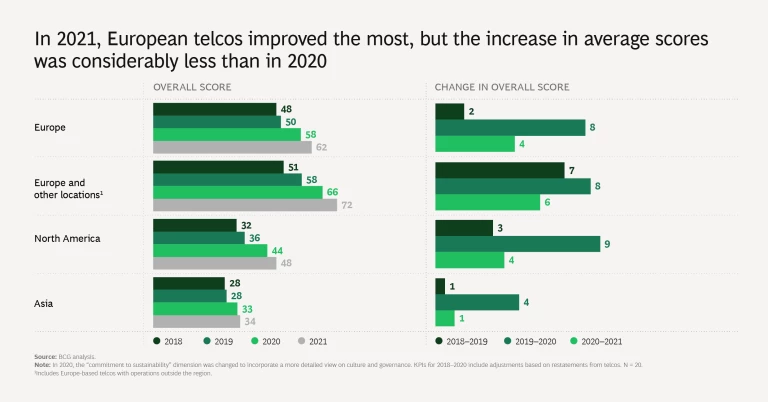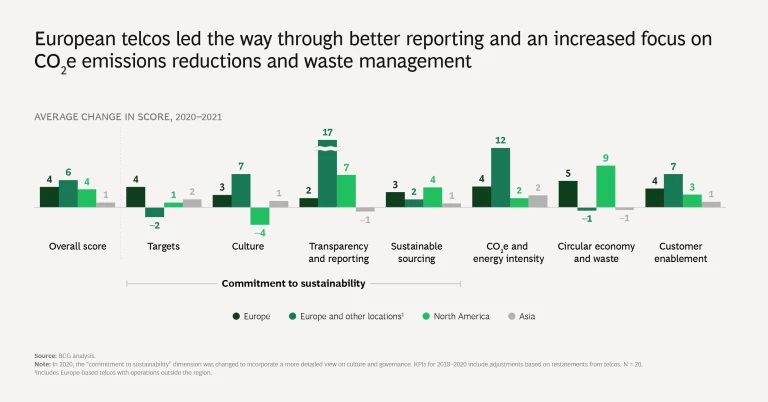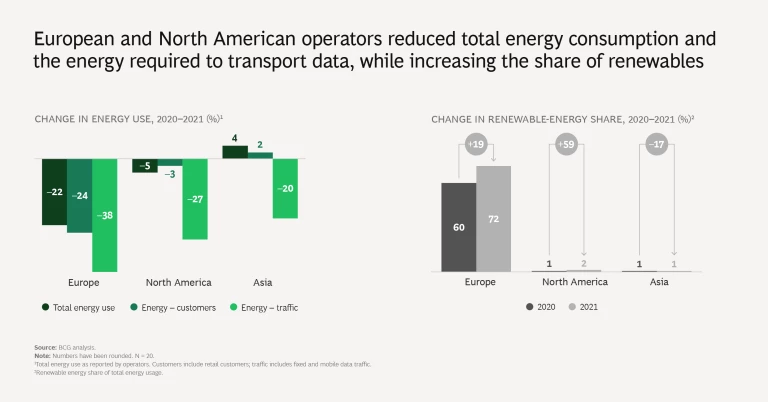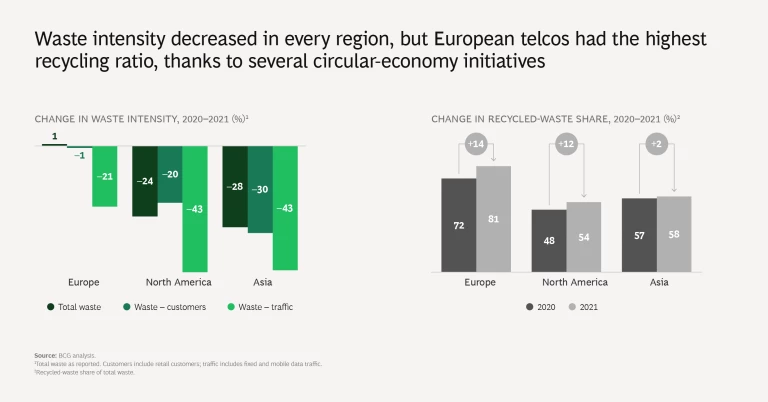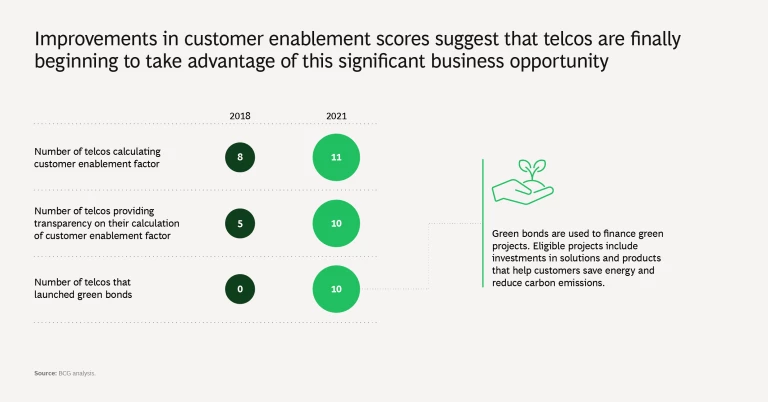Telecom providers face mounting pressure to improve their environmental sustainability, but they’ve been slow to respond. It’s time to take action.
The Implementation Imperative
Execution on sustainability goals will require telecommunications providers to change their approach to steering. Traditionally, management efforts were guided by revenues and profits, followed by customer satisfaction. Now, they must also take sustainability factors into account in their steering processes, especially environmental sustainability issues, such as greenhouse gas (GHG) emissions and waste. Already, some companies are using internal carbon pricing to monitor progress, translating emissions and waste metrics back into dollars.
Yet even operators that are making progress realize they do not know enough about their emissions and waste. Some metrics, including emissions related to business travel, have been relatively easy to track; but others, such as the Scope 3 emissions related to the equipment they buy or their downstream products and services, have proved far harder. And as the Telco Sustainability Index shows, operators have been especially slow to take action on waste. With some exceptions, few have established a clear baseline on efforts to recycle smartphones or the equipment they provide to customers, and fewer still have committed to actual waste reduction targets.
Execution on sustainability goals will require telecommunications providers to change their approach to steering.
The key challenge for the telco industry in the next few years will be for providers to accurately measure their emissions and then execute on commitments to reduce their carbon footprint. Doing so will require a more systematic, automated, repeatable approach to establishing an end-to-end GHG emissions baseline, including upstream and downstream emissions across the entire telco supply chain. This is the only way providers will be able to identify the greatest sources of emissions and then launch the most effective abatement initiatives.
Having an automated approach in place will be essential for operators looking to maintain their business-as-usual operations. If every purchase decision were to require a manual assessment of the emissions or waste consequences, operators would be unable to change suppliers or react to market trends quickly. The same holds true for products and services. Without an automated assessment tool, launching new products and services would become a far slower and more cumbersome process.
By gathering data not just on the emissions for which they are directly responsible but also on the emissions triggered by the products and services they sell to customers, this type of assessment tool can allow telcos to offer services with defined emissions profiles to customers looking to track and reduce their own footprint. And it can help providers overcome the challenge of motivating all their employees to live up to corporate sustainability commitments and embrace them when they execute their daily work. A win-win for all concerned.
The benefits for those that succeed in these initiatives are real. Our research shows that climate leaders capture higher revenue growth for their “green” products, face lower regulatory risks, gain cheaper financing, and reap better total shareholder returns.
